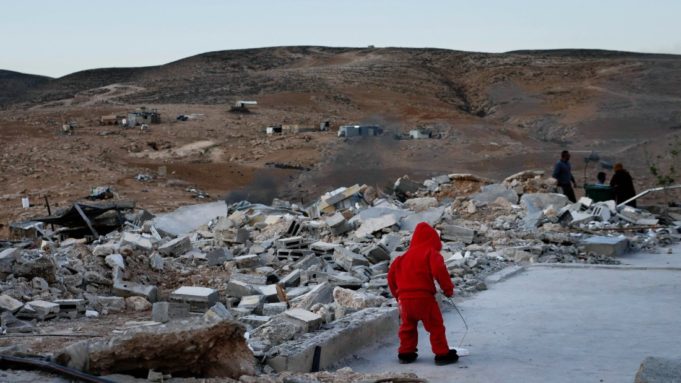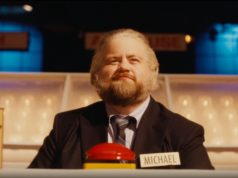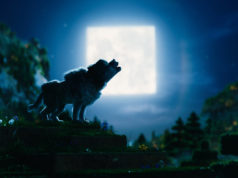Our idiot president has said that the Gazans should go find a homeland somewhere else. If he’s willing to put them up in Trump Tower, I’ll be impressed. Otherwise, he’s an idiot (and a rapist, too, but that’s another story). I’m glad he said that, however, because his remarks give some extra juice to the release of No Other Land, which opens at the Alamo Drafthouse Denton this weekend. It already won the documentary prize at last year’s Berlinale, it’s up for an Oscar for Best Documentary, and I named it as the best documentary of 2024. You couldn’t see it before this because the studios were afraid to pick it up for distribution, but now that it’s here, it’s well worth the trip to Denton or the Dallas-side theaters showing it.
The story begins in the summer of 2019, when the Israeli government wins a 22-year legal battle to evict the citizens of Masafer Yatta, an occupied region in the West Bank. This is when Basel Adra starts filming. His father Nasser, who was imprisoned repeatedly for protesting the occupation, has cleverly built a gas station into the foundations of his house, so the Israelis are less likely to demolish a business that they themselves will need. As Basel films soldiers leveling the houses in the 20-odd villages of Masafer Yatta, he’s joined by Yuval Abraham, an Israeli journalist who doesn’t like what his government is doing in the West Bank. (More than a few Israelis agree with him on that, let’s remember.) The cameras capture the meeting between him and Basel as well as Hamdan Ballal, another Palestinian who will become a co-director on this project along with them.
There’s nothing quite like a documentarian who is willing to actively put themselves in harm’s way to record what’s happening. It’s what animates Michael Moore’s best films, as well as Joshua Oppenheimer’s documentaries about Indonesia, where he got government officials to threaten his life on camera for asking questions about the various genocides under Suharto’s regime.
The filmmakers here are possessed of a similar cool, and that quality is what makes No Other Land into such an electrifying experience, as the handsome Abraham knows that he has leeway that his Arab colleagues do not. He uses it for all it’s worth, pushing his camera in the faces of Israeli soldiers and asking them why they’re destroying people’s homes. More than a few of them tell him to fuck off, in English and in Hebrew. One Israeli civilian goes further by filming Abraham and vaguely promising retaliation for being a traitorous Jew. Even further than that, Adra films an Israeli soldier shooting a Palestinian construction worker who’s trying to keep his building tools from being confiscated. The man is rendered a quadriplegic, and the footage of his shooting creates trouble for the army and Netanyahu’s government.
Much of the story takes place before the October 2023 terrorist attacks from Gaza that brought on this current crisis in the Middle East, but it’s striking how little that changes the story’s course. In fact, film footage taken by Nasser Adra in the 1990s plays remarkably like the story we’re watching play out, as the Israelis try to clear out the Arabs while the Arabs (whose history with that land is documented dating back to the early 19th century) try their best to stay where they are. How exhausting it must be to live in that constant state of crisis. One eminently sane way to cope with it is to document it. Another way is to use that documentation to push back. No Other Land does both, and its very existence is deeply moving. Its excellence, however, makes it worthy of its awards.
No Other Land
Starring and directed by Yuval Abraham, Basel Adra, Hamdan Ballal, and Rachel Szor. Not rated.












